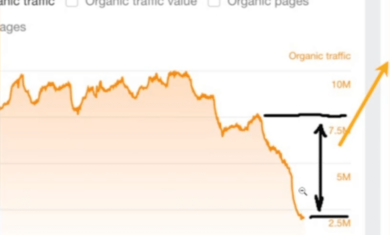If you’ve done much research into search engine optimization, you’ve likely heard that you should be wary of duplicate content to avoid a penalty from Google. The good news is that there isn’t really a penalty for it, but you should still certainly work to avoid any kind of duplicate content-related issues.
Mark Traphagen at Stone Temple Consulting summed it up very well:
First of all, let’s clear something up: there is no such thing as a “duplicate content penalty.” The only problem with duplicate content is that Google has to decide which copy should rank highest. And that only becomes a problem for you if the ranking copy isn’t the one you want to drive the most traffic to!
If Google finds multiple copies of content, they do their best to determine who is the original author of it. That content will rank the best, and other content will effectively be hidden in the search results.
How does this happen?
There are two main ways that duplicate content can become a problem.
- Theft: If you steal content from somewhere else, or someone steals your content, this situation is likely to surface in one way or another.
- Sydication: If you get your content from a news service, they’re likely sending content over that is also going to show up on a bunch of other sites. Your odds of ranking well for those pages is very low.
So what can I do?
The first step is easy; create original content. As long as your content is truly unique there won’t be a problem. The issue that you need to watch out for is someone stealing your content, posting it on their own site, and then outranking you for it! Google should identify that easily enough so that it won’t happen, but there are steps you can take to help insure that you remain the original author in the eyes of Google.
- Links/Authority: Inbound links are a big key to SEO success. If you have many links pointing to your site and you’ve built up authority with Google, that will help them to convince them that you’re the right one.
- Pubsubhubbub: As Search Engine Journal mentioned in this article, using Pubsubhubbub can be helpful. We often use a plugin called PuSHPress for that, which “pushes” your content out using the Pubsubhubbub protocol as soon as you publish it. Making sure Google sees your article before they see a copy of it (and think maybe the copy came out first) is very important.
- RSS Footer: This feature has less usefulness today, but could still be of benefit. Some plugins (such as WordPress SEO by Yoast) include a feature called “RSS Footer”. What this does is append a link back to your site at the end of your RSS feed entries. If a spammer is lazy and simply reposting from your feed, this link will help signal to Google that you’re the original author of the content. It’s potentially a big dangerous because it will be creating “bad” links on those sites, but at this point the benefits still outweight the risks.
Don’t “protect” your content
One last piece of advice is to avoid the urge to “protect” your content. There are things you can do to help prevent people from stealing it, but those also make life harder on your legitimate readers. We’ve covered this in-depth last year, but it applies today. You don’t want to be foolish with your content, but you’ll never be able to fully protect it. Allowing users to easily share it will likely result in more links back your site and be of great benefit to you.




